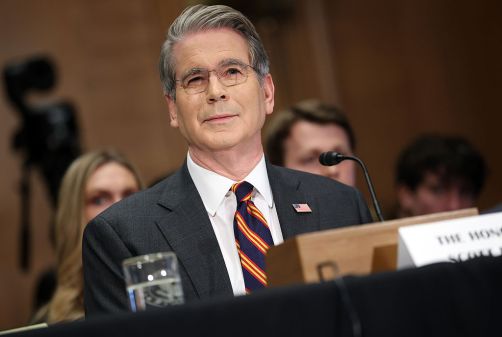White House studying benefits and risks of AI

The White House will host a series of public meetings to help figure out the benefits and risks of recent and anticipated breakthroughs in artificial intelligence — and will study how it could help government services.
Four workshops will be held across the country in the next two months, co-hosted by local universities and non-profits, examining the various ways AI is already intruding into public life, according to the White House’s Office of Science and Technology Policy.
The announcement comes in the wake of comments from the government’s top blue-sky researcher on the limits of AI — and of recent public commentary about the apocalyptic threat of learning machines.
“Like any transformative technology, artificial intelligence carries some risk and presents complex policy challenges along several dimensions, from jobs and the economy to safety and regulatory questions,” writes U.S. Deputy CTO Ed Felten in a blog post.
“There are tremendous opportunities and an array of considerations across the Federal Government in privacy, security, regulation, law, and research and development to be taken into account when effectively integrating this technology into both government and private-sector activities.”
The workshops will be held as follows:
- May 24: Legal and Governance Implications of Artificial Intelligence in Seattle, Wash.
- June 7: Artificial Intelligence for Social Good in Washington, D.C.
- June 28: Safety and Control for Artificial Intelligence in Pittsburgh, Pa.
- July 7: The Social and Economic Implications of Artificial Intelligence Technologies in the Near-Term in New York City.
The workshops “will feed into the development of a public report later this year,” said Felten.
Additionally, a new panel of the National Science and Technology Council — the Subcommittee on Machine Learning and Artificial Intelligence — will examine the use of AI and machine learning to improve the delivery of government services.
“There is tremendous potential in AI-driven improvements to programs and delivery of services that help make everyday life better for Americans in areas related to urban systems and smart cities, mental and physical health, social welfare, criminal justice, the environment, and much more,” Felten writes.
The subcommittee will meet for the first time next week.
[Read more: DARPA director cautions on AI’s limitations]
The news comes in the wake of recent comments from the director of the Pentagon’s blue-sky research effort, that seemed designed to balance enthusiasm about anticipated breakthroughs in AI technology with caution about its limits.
The best facial recognition systems out there are statistically better than most humans at image identification, for instance, but when they’re wrong, “they are wrong in ways that no human would ever be wrong,” Arati Prabhakar, director of the Defense Advanced Research Projects Agency, told an Atlantic Council event last week.
“I think this is a critically important caution about where and how we will use this generation of artificial intelligence,” she said.
“You want to embrace the power of these new technologies but be completely clear-eyed about what their limitations are so that they don’t mislead us,” Prabhakar said.
Others, most famously entrepreneur Elon Musk, have suggested that AI might pose an existential threat to humanity.
Contact the reporter on this story via email at greg.otto@fedscoop.com, or follow him on Twitter at @gregotto. His OTR and PGP info can be found here. Subscribe to the Daily Scoop for stories like this in your inbox every morning by signing up here: fdscp.com/sign-me-on.






